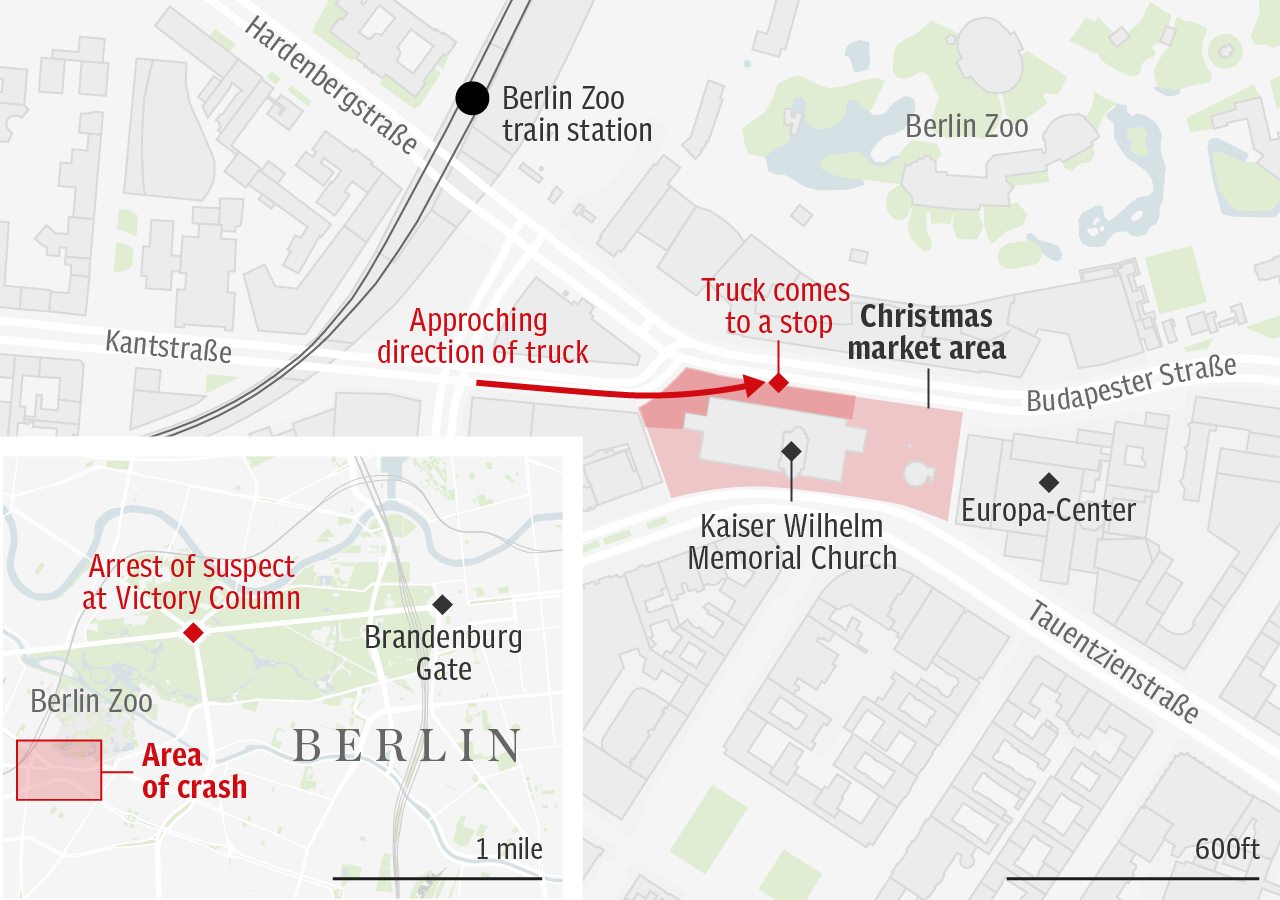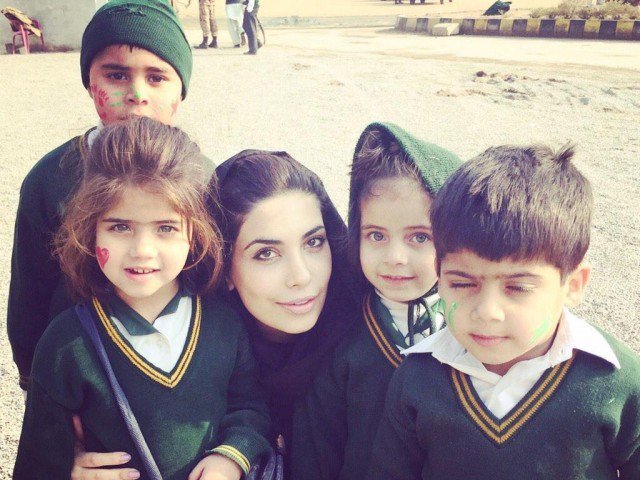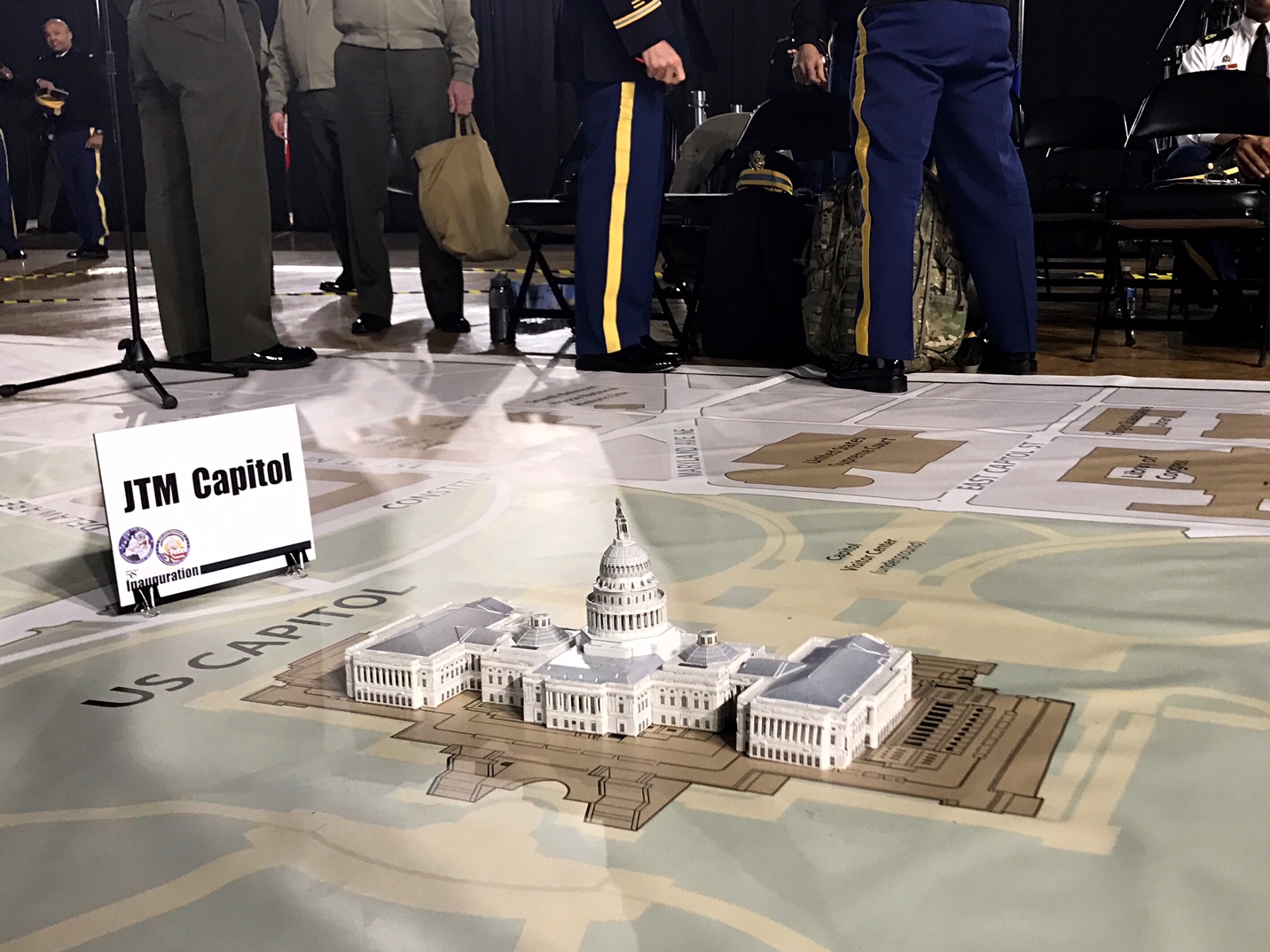BERLIN — After police killed the asylum seeker suspected of the deadly truck rampage here, other migrants expressed relief that a terrorist was caught but also anxiety about a renewed backlash against them.
“We come from another country, so it’s difficult for us to see this happen,” Omrr Mohebzada, 26, who is from Herat, Afghanistan, said Friday after Tunisian national Anis Amri died in a shootout with police in Milan, Italy.
Mohebzada fled Afghanistan 18 months ago because his father’s logistics company works with the U.S. military and radical Taliban insurgents trying to regain control of the U.S.-backed government threatened to kill him. “Germany has been very good to us. We feel bad when we hear this news. We don’t want Germans to turn against us.”
It’s a reasonable concern in a country that accepted approximately 1 million migrants from war-torn countries in the Middle East and elsewhere during the past two years under Chancellor Angela Merkel’s open-door policy. But her welcoming stance has come under increasing assault from an anti-immigration party that has that has shown surprising strength in local elections this year.
A backlash against the flood of refugees flared a year ago, when gangs of recent arrivals were accused of mass sexual assaults of women during New Year’s eve celebrations in Cologne and other cities. Since then, there have been other attacks by migrants that have put Merkel under pressure to reverse her refugee policy.
Amri, 24, the suspect in Monday’s truck attack at Berlin’s Breitscheidplatz, which killed 12 and injured 48, spent time in jail for theft and vandalism. His German asylum application was rejected because authorities feared he had become radicalized. He avoided deportation because of a bureaucratic mix-up, and he had been under surveillance as a potential terrorist but had not done anything to justify his arrest earlier.
The truck attack occurred five months after a Syrian man killed a woman and wounded five more people with a machette. Also in July, a teenage refugee from Afghanistan injured five tourists from Hong Kong with an ax and knife on a train. In a separate incident, another Syrian blew himself up outside a bar, wounding 15 people.
Because the Berlin attack was the most deadly terror incident, it has heightened concerns among asylum seekers that they will be targeted for even more retribution than already has occurred. There have been more than 1,000 incidents, dozens of them violent, targeting refugee shelters and asylum seekers in Germany since the start of this year, according to the interior ministry.
Odeh Diab, 20, a Syrian refugee, said that in Berlin, the vast majority of his interactions with Germans have been positive and helpful but a backlash is noticeable in small ways. “Often when I get on the subway and sit down, people immediately move away from me because they think I am dangerous,” he said.
He pointed out that there was a far-right, anti-immigration demonstration at the site of the Christmas market attack on Wednesday night, but a simultaneous counter-protest was far larger.
“The idea of a huge ‘backlash’ against the refugees is being pushed by the right-wing political agenda of some of political parties and groups,” said Gregor Wendler, a Berliner with a government-funded organization that helps refugees find work in Germany’s capital. “That only works on people who don’t know how they feel about refugees.”
About two-thirds of Germans approve of Merkel’s decision to stand for a fourth term in next year’s general election, according to a poll published in late November — before the attack — by PoliBarometer.
Still, an earlier survey published by Germany’s Focus magazine found that 60% of Germans want Merkel to put a fixed limit on the number of refugees Germany accepts, a proposal she has repeatedly rebuffed. Meanwhile, the nationalist, anti-immigration Alternative für Deutschland party has seen its popularity soar in recent parliamentary elections, although it has peaked at about 15% nationwide.
“This attack is bad news for all of us refugees who live in Germany,” said Mohammad Soltani, 25, a former bodyguard for a wealthy political family in Kabul, Afghanistan.
Like fellow Afghan Mohebzada, Soltani sought asylum in Germany because the Taliban had made repeated threats to kill him and he saw no other option. “A lot of my friends in Germany are very sad about this attack,” he said. “I hope they captured the right guy. I hope the government does not change its mind about refugees.”
Mohebzada said he hopes the death of the Berlin attack suspect will allow people in Germany and throughout Europe to enjoy Christmas.
Like most asylum seekers in Germany, he and his wife and two small children are Muslim. “Wait, remind me,” he said. “What is the name of the guy with the big, white beard and red clothes?”







